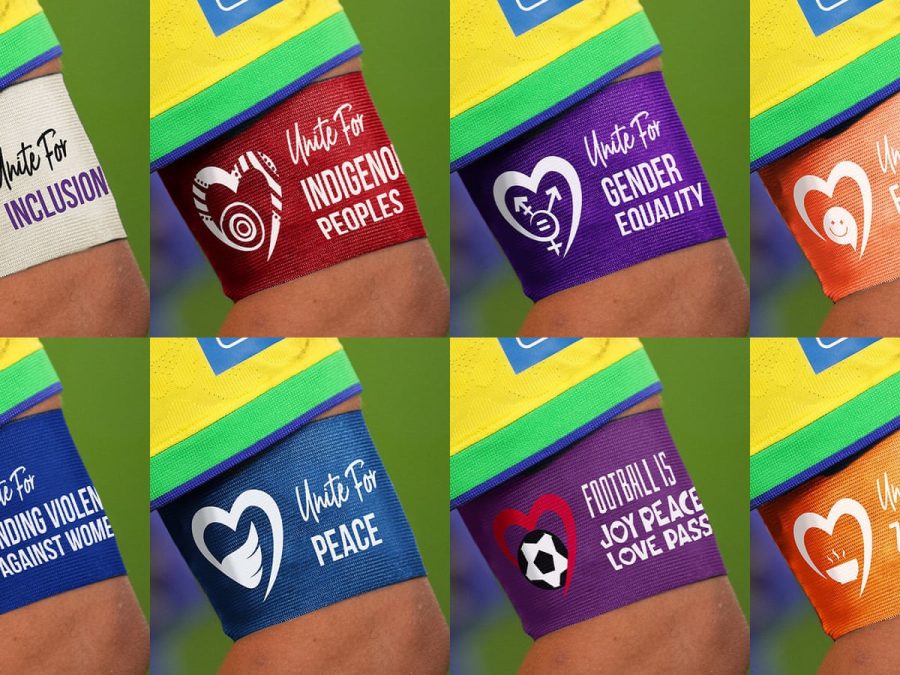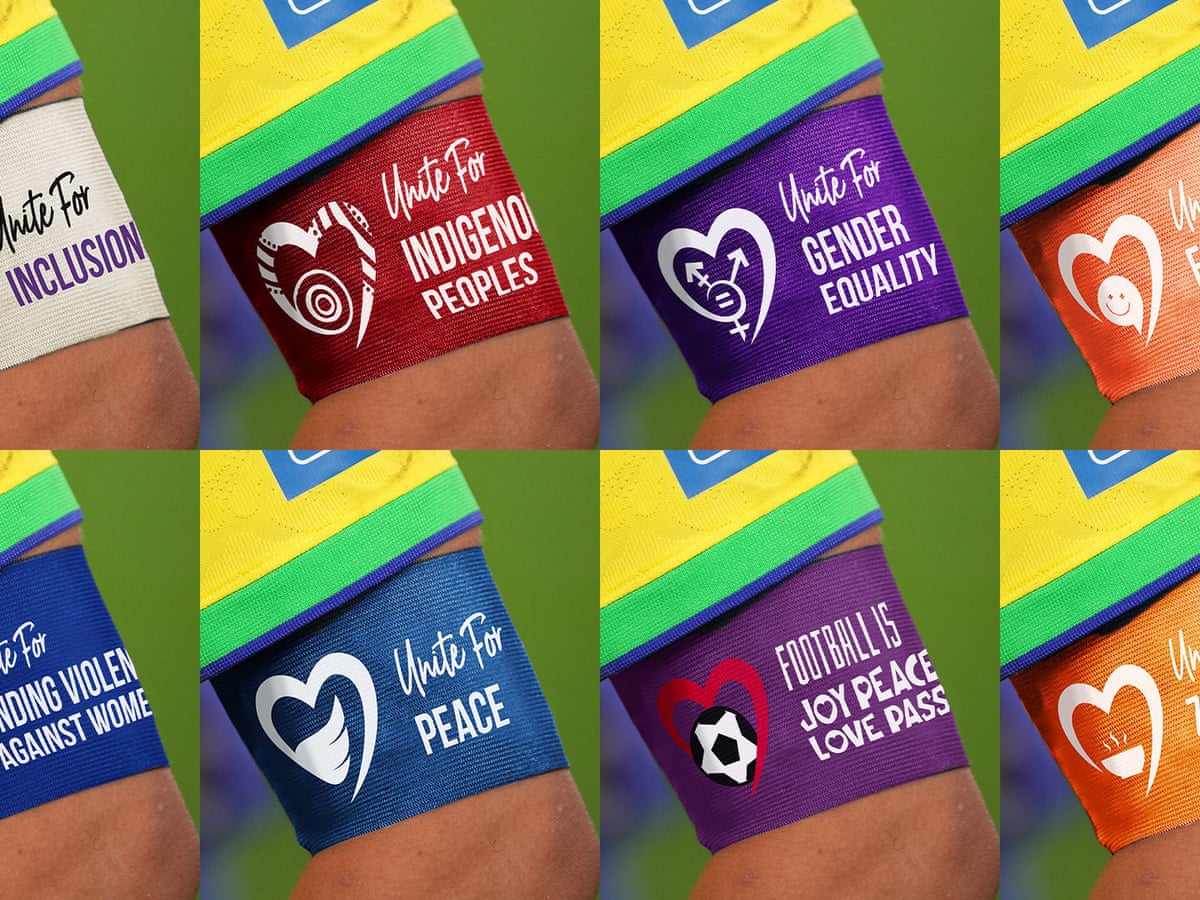
FIFA unveils eight social cause armbands for Women’s World Cup
FIFA revealed eight different armbands highlighting social causes that sides will be able to wear at the women’s World Cup as world football’s governing body seeks to avoid a row that erupted at last year’s men’s World Cup. ALSO READ: When do Banyana Banyana play at the FIFA Women’s World Cup Captains from a number of European […]

FIFA revealed eight different armbands highlighting social causes that sides will be able to wear at the women’s World Cup as world football’s governing body seeks to avoid a row that erupted at last year’s men’s World Cup.
ALSO READ: When do Banyana Banyana play at the FIFA Women’s World Cup
Captains from a number of European countries, including England and Germany, planned to wear a “OneLove” armband in rainbow colours in Qatar in support of LGBTQ rights.
However, they abandoned that stance after being threatened with sporting sanctions just days before the tournament kicked off.
The armband had widely been viewed as a symbolic protest against laws in Qatar, where homosexuality is illegal.
ALSO READ: When do Banyana Banyana play at the FIFA Women’s World Cup
The “unite for inclusion” armband for the women’s World Cup is similar in style to the one outlawed with the words alongside a heart shape in rainbow colours.
Other causes highlighted include gender equality, ending violence against women, hunger and the rights of indigenous people.
FIFA
Captains will be able to wear a different armband for each match corresponding to the cause being promoted or support one cause for the entire tournament.
ALSO READ: FIFA Women’s World Cup Trophy Tour comes to South Africa
“Football unites the world and our global events, such as the FIFA Women’s World Cup, have a unique power to bring people together and provide joy, excitement and passion,” said FIFA President Gianni Infantino
“After some very open talks with stakeholders, including member associations and players, we have decided to highlight a series of social causes – from inclusion to gender equality, from peace to ending hunger, from education to tackling domestic violence – during all 64 matches at the FIFA Women’s World Cup.”
ALSO READ: South Africa’s Akhona Makalima off to FIFA Women’s World Cup
The women’s World Cup, which will be hosted by Australia and New Zealand, begins on July 20.